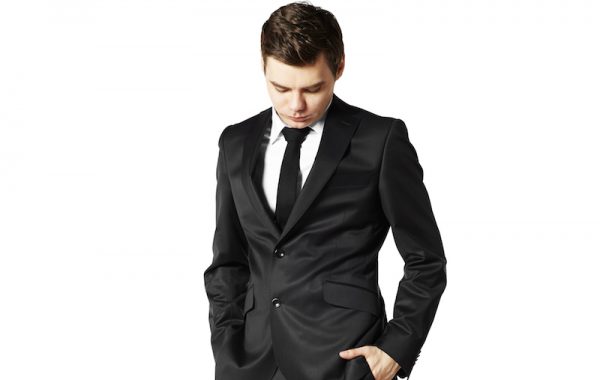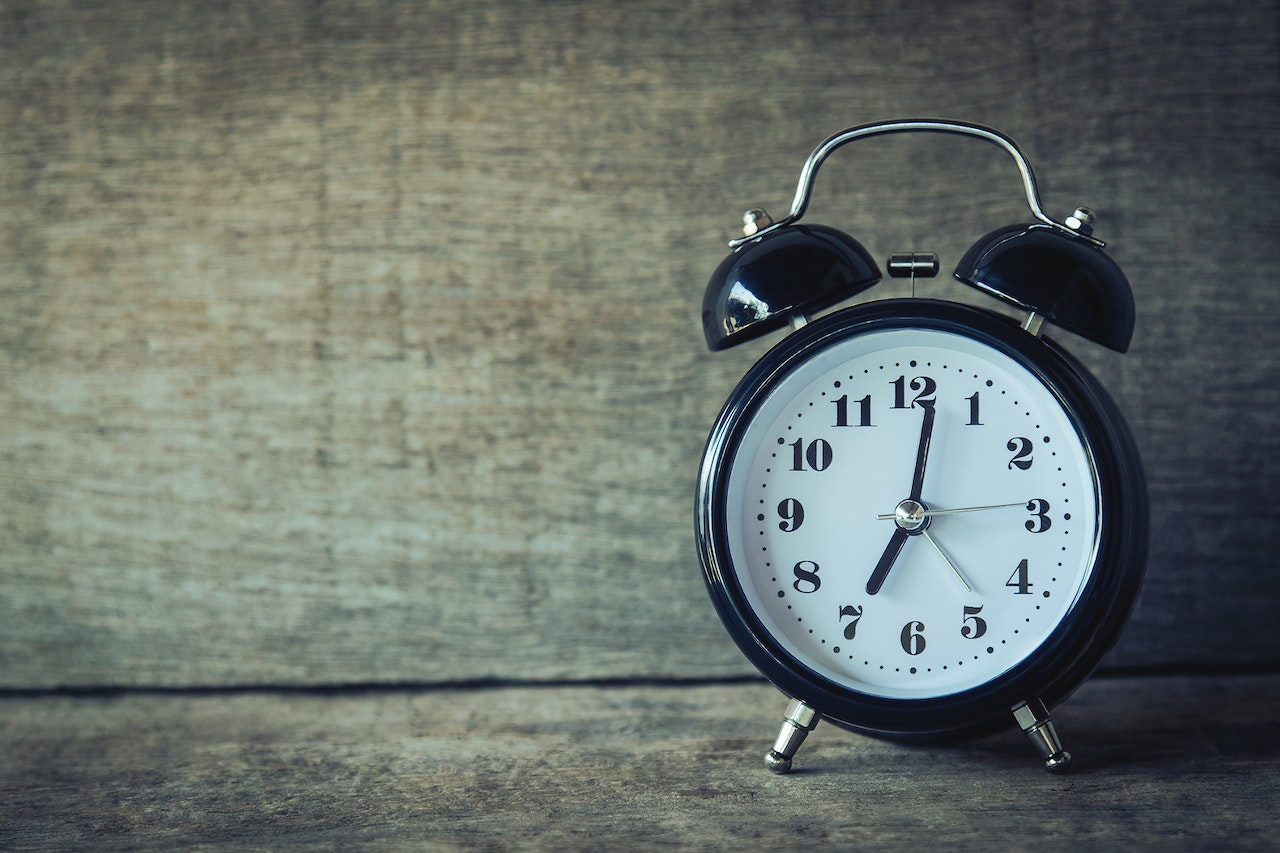What you should never do during and after an interview
Published

Interviews can be nerve-wracking. Here are some of the most common mistakes and how to avoid them.
- Some of the most common mistakes candidates make include not reporting, reporting too often, and being late for the interview.
- HR managers also make mistakes, e.g. For example, they let social media influence their decisions, talk too much during the conversation or don't state their goals.
- If you make a mistake, it's best to quickly acknowledge and correct it.
Interviews can be an anxiety-inducing experience for job candidates. This fear often leads to applicants making avoidable mistakes before, during and after the interview. Interviewers aren't perfect either - they can fall into the common traps that lead to poor hiring decisions. Read on to best prepare for the interview.
Before the interview
First of all, be grateful because only 2% of applicants are invited .
Prepare before the interview Questions about your professional background and skills and explain why you believe you are suitable for both the position and the company. Make sure you know the basic facts about the company, the scope of your potential role and - if possible - the person(s) who will be interviewing you.
Interview checklist
Before your first interview, follow this checklist. Here is one short instructions , which explains how you can win the conversation in just 5 minutes.
- Familiarize yourself with the company and the position. Sharing your knowledge of the company gives the impression that you've taken the time to do your homework. As you become more familiar with the position you want to fill, you can also respond to questions.
- Bring your own questions. Go into the conversation with questions about the company and the position that you were unable to answer during your research. Leave time for any additional questions that may arise during the conversation.
- Practice answering some basic interview questions. You don't have to memorize a script, but admitting your weaknesses and strengths will help you answer these types of questions clearly during the interview.
- Proofread and print your resume and cover letter. These documents will likely form the basis of your interview, so you should check that you can still remember everything they contain. You should also print out additional copies so that you can give them to your interviewers if they cannot print them out in advance.
- Plan your route. Arriving late to an interview can leave a negative first impression, so you should plan your route in advance. This may mean adjusting for traffic if you drive, or looking at public transport schedules and putting together a route that allows you to arrive early. If your first interview is online, you should test the connection, camera and audio on your device before the interview.
- Choose your outfit and iron out the wrinkles. Even if you don't need to dress formally for your interview, you should iron the clothes you will wear. Choosing clean, wrinkle-free clothing items can give others a good first impression of you.
Avoid these common mistakes on interview day.
Poor hygiene and personal appearance
It should go without saying that you should always maintain good hygiene in a professional environment. No employee wants to work near a smelly colleague, and HR managers feel the same way. According to a 2020 report from Recruiter Nation, 46% of hiring managers would disqualify a candidate because of poor hygiene.
Make sure you are clean, look good, and are dressed appropriately for the position you are applying for. If you are unsure, consider dressing professionally rather than casually.
Late arrival
Showing up late to an interview isn't just bad behavior - it shows the hiring manager that you're not interested in the job, have more important things to do, or simply aren't responsible enough to show up on time.
This mistake can cost you the job, as 46% of hiring managers surveyed said they would not consider a candidate who arrived late. To be on the safe side, you should arrive at the interview at least 10-15 minutes early. This gives you more time to make sure you are in the right place or to get a visitor pass. If you have to wait a few minutes, you can sit in the lobby and go over your notes or use the restroom to check your clothes one last time.
The most important thing to take away: Even if you're used to being slightly late for virtual meetings at your current job, being late to an interview is particularly rude - avoid it at all costs.
Rude behavior towards the receptionist

Those: vizito.eu
It is important that you be friendly to everyone in the office when you come for an interview. You never know who will have a say in whether you get the job.
According to the Recruiter Nation report, 62% of hiring managers said they would remove a potential employee from the running for the job if they were rude to front desk employees.
Be polite, professional and courteous to everyone you interact with throughout the process and thank them for your time as you leave.
During the interview

Those: jobvector.de
Even if you're confident about your ability to fill the position, you may find yourself unexpectedly anxious when you sit down for the interview. This fear could cause you to make mistakes that you later regret. Memorize these mistakes now so that you repeat them as rarely as possible.
Excessive comfort with the interlocutor
Even if you get along well with the hiring manager, you should remain professional throughout the interview.
“Be polite, but never get too familiar,” says Jodi Chavez, president of Randstad USA Professionals, Life Sciences & Tatum. "Many people assume that they are comfortable from the start in order to build a relationship, but that could turn off the person you are talking to.
The same applies to social media. While they are a great marketing and networking tool, they are not suitable for connecting with the potential hiring manager.
"A mistake is to ask the hiring manager or one of the interviewers to connect with them on LinkedIn as soon as the interview is over," says Richard Orbe-Austin, career coach and partner at Dynamic Transitions Psychological Consulting. "This request could seem too presumptuous and put off the hiring manager or interviewer.
Don't try to friend someone on Facebook or follow them on Instagram or Twitter. General corporate accounts are fine, but respect the interviewer's personal boundaries.
Tipp : Even if you get along well with the person you are talking to, he or she is not your friend. Stay professional, even if you feel like you got along well.
Bad body language
Hiring managers pay attention not only to your verbal answers, but also to how you give them. Do you look them in the eyes? Do you fidget, play with your pen, or cross your arms over your chest? All of these nonverbal cues play a role in the impression you make.
Your eye contact, handshake, and posture can make or break your chances of getting a job. There are positive nonverbal signals you can send during an interview to change your mind.
In general, sitting upright shows that you are paying attention, and leaning forward slightly conveys interest and engagement. A warm and genuine smile helps everyone feel comfortable. You should also have a firm handshake, but not too much - squashed hands won't win you favor.
It's okay to use hand gestures during the conversation, but avoid shaking your legs, tapping your fingers, or playing with a pencil.
And finally, you should maintain eye contact. Staring can make the interviewer uncomfortable, but it is polite to look the other person in the eyes, with small pauses to look away. The goal is to be engaging and interactive. Looking someone in the eyes when they speak to you and while you respond shows that you respect the person and are present in that moment. Frequently looking away or looking over your shoulder while talking to someone conveys disinterest.
Bad body language
Hiring managers pay attention not only to your verbal answers, but also to how you give them. Do you look them in the eyes? Do you fidget, play with your pen, or cross your arms over your chest? All of these nonverbal cues play a role in the impression you make.
Your eye contact, handshake, and posture can make or break your chances of getting a job. There are positive nonverbal signals you can send during an interview to change your mind.
In general, sitting upright shows that you are paying attention, and leaning forward slightly conveys interest and engagement. A warm and genuine smile helps everyone feel comfortable. You should also have a firm handshake, but not too much - squashed hands won't win you favor.
It's okay to use hand gestures during the conversation, but avoid shaking your legs, tapping your fingers, or playing with a pencil.
And finally, you should maintain eye contact. Staring can make the interviewer uncomfortable, but it is polite to look the other person in the eyes, with small pauses to look away. The goal is to be engaging and interactive. Looking someone in the eyes when they speak to you and while you respond shows that you respect the person and are present in that moment. Frequently looking away or looking over your shoulder while talking to someone conveys disinterest.
Salary expectations are rising
Mike Astringer, recruiting manager at HKA, noted that HR managers interview applicants based on their original salary expectations, among other things.
“We [need to] know that they fit within our general salary range,” he said. “All too often, a candidate will interview for a job, become overconfident [and] then dramatically increase their salary expectations.
Astringer said he makes an offer to an applicant based on those initial salary expectations. Applicants should avoid drastically raising their expectations at the last minute. "It makes the applicant look bad, makes me look bad, and wastes everyone's time."
overestimation of oneself
Self-confidence and even arrogance can have a very intimidating effect on an interviewee. In a 2018 CareerBuilder survey, more than 59% of hiring managers said arrogance or entitlement would be an immediate deal breaker for them.
Becky Beach, CEO of Mom Beach, shared the story of a candidate who took his confidence a little too far.
"The day after the interview, he tried to contact me on LinkedIn and wrote, 'Thanks for the interview yesterday. Let me know when I can start the job.' I decided he wouldn't be hired after that."
Be confident and have confidence in your abilities, but remember that the ball is in the interviewer's court and you should defer to them.
Lack of transparency

Those: euroakademie.de
It is important to be open and honest throughout the interview to show that you are a valuable applicant with integrity.
“I had an applicant who completed two rounds of phone interviews and a one-day interview,” said Lisa Barrow, human resources manager and owner of Kada Recruiting. "She told me that she is not actively applying anywhere else. After the interview, she sent a thank you email to the CEO mentioning an offer from another agency. The CEO called me and said he was amazed and worried about their lack of transparency in this process.
Both Barrow and the CEO had a follow-up interview with the applicant, who admitted that she hadn't really considered the other offer and had only mentioned it to show she was very interested in the company. She apologized, but Barrow said: "This ultimately showed how important transparency is and the impact it can have on the process."
Short-sightedness on social media
Many followed the disaster of the NASA intern who insulted a former NASA engineer on Twitter and then lost her job. It should be a rule of thumb to avoid rude, offensive, or sensitive posts about the application process during the job search.
"Contributions about the interview, particularly about the interviewer, can be viewed as a lack of confidentiality or professionalism," says Michelle Merritt, managing partner at Circle City Coaching.
It's even better to always remain professional on social media, as potential employers might search a candidate's name online to see what pops up there. A professional and polished online presence is important regardless of your career stage.
After the conversation
Congratulations, you've completed your first interview! What now? Write a personal thank you to each person you speak to - handwritten or by email. Afterwards, be patient and avoid these common post-interview mistakes.
Too much follow-up
It's okay - and even expected - to follow up after the interview, but don't overwhelm your potential employer with numerous messages and calls. If you reach out too often, you'll scare the hiring manager away.
"Many of us are programmed to send thank-you notes immediately after an interview, and sometimes that's true, but... pay attention to the communication parameters that the interviewer has set," says Chavez. "For example, if the person you're talking to wants to communicate via email, stick to that and don't pick up the phone."
She said your follow-ups should also depend on how far along you are in the application process. "In general, the earlier you are in the process, the quicker you should reach out. An initial telephone interview that receives no response may require a follow-up within a week. However, after a second or third interview, you should 7- Wait 10 days.
At the end of the interview, ask the hiring manager when you can expect a response and when it's appropriate to reach out if you haven't heard from them, says Jennifer Akoma, vice president of human resources at Android Industries. Do not take it upon yourself to reach out to people who have not given you permission to do so.
"We had an applicant [who] ... used an organization where many of our employees worked to get their internal emails and phone numbers," Akoma said. "Their guerrilla tactics left a very negative impression on me and many of our employees."
It is good form to send a thank you note to the interviewees a day or two after the interview and wait for them to follow up with next steps. Keep in mind that you may not always receive a response.
No follow-up

Follow-up - Source: roberthalf.de
After the interview, it is important that you thank your interviewer in some way for their time and effort - be it by post, email or even by phone.
"The most common mistake I see candidates make after an interview is not following up," says Melissa McClung, professional career counselor and owner of Life by Design Careers. “Follow-up via email, card or letter is essential.
According to Zohar Pinhasi, CEO of MonsterCloud, a candidate who reaches out after the interview not only expresses gratitude, but also shows that they still want the job.
"An email after the interview assuring me of his interest in the position shows his ambition and also tells me that the candidate enjoyed the interview and is in fact still interested in working for me" , he said. “It’s also a polite gesture.
The follow-up to the interview is another opportunity to make yourself known to the interviewer by confirming your interest and showing good manners.
Lack of personalization
"It's always a good idea to make something as personal as possible," says career coach Irina Pichura. "Think about topics that came up in the interview and anything you would like to add that you weren't able to bring up during the interview, emphasizing your interest in the company."
Most hiring managers will recognize a generic thank you letter (or even a cover letter) from afar, so take the time and effort to tailor your letter to the interviewer. Elaborate on something you discussed that isn't necessarily related to your skills or the job description.
For example, let's say you talked about a project you worked on in a previous position. Include a link or example of this project in your cover letter to reference the conversation and demonstrate your skills.
Ghosting -Communication
If you decide that the position is not right for you, for whatever reason, contact the company and let them know that you would like to withdraw your application. The person who conducted the interview with you took a lot of time for you. So it would be polite if you acknowledged these efforts with a friendly thank you and an official withdrawal.
What to do if you make a mistake?
Mistakes happen. Although it depends on how serious the mistake was, in most cases you can recover from it if you treat minor faux pas with grace.
Rishit Shah, accountant and owner of the TallySchool blog, remembers an applicant who accidentally sent his thank you letter to the wrong person in the company. "He quickly apologized and sent the letter to the right person. What I liked about him was that he acknowledged his mistake and quickly corrected it."
But no matter what happens after a mistake, don't burn any bridges.
"If you don't get the position in question, you should send a friendly follow-up letter to hiring managers and/or human resources, expressing your interest in future positions," says Akoma. “This leaves a good impression and could lead to you being considered for other positions.
Mistakes to avoid as an interviewer
Job candidates sometimes forget that being on the other side of the process is often just as stressful. Interviewers and hiring managers are under pressure to find a candidate who can perform the job duties, fit into the company culture, meet the offered salary, and meet many other important criteria.
Interviewers can also make mistakes. Here are some of the most common mistakes interviewers make and how to avoid them.
Subjective or arbitrary criteria
Rather than "screening out" candidates based on initial gut feeling or unpredictable criteria - such as grade point average, address on resume, or the sound of a name, the interviewer should ensure that the evaluation process is as structured, job-specific, and objective as possible. This gives them the chance to hire great people they might not have otherwise even considered, explains Michael Burtov, founder and CEO of GeoOrbital.
Social media bias
Although social media plays an important role in job searches today, Burtov says it can create unconscious bias in interviewers. Social media profiles often contain pictures of applicants and other information that is irrelevant to the job but can unfairly influence decision-making.
Focus on what is professionally relevant, e.g. B. on the information in your LinkedIn profile.
Too much chatter
It is common for the interviewer to launch into a monologue about the opportunity, the company, the culture, and other characteristics of the position during the interview. While this can be an important part of familiarizing the candidate with the company, it is important to give the candidate plenty of opportunity to talk. The more job-relevant information you have about the applicant, the more likely you are to base your hiring decision on objective criteria rather than incomplete and potentially biased impressions. A good rule for an interviewer is: 80% listen, 20% talk.
Personal bias
As humans, we tend to like people who share our personal likes and interests, e.g. B. in relation to music, sports, television shows, lifestyle and other behaviors that are not relevant to the job.
When interviewing, remember that liking the same TV shows has nothing to do with job performance. Interviewees should not allow their judgment to be subconsciously influenced by the fact that they are “like me.” Remain as objective as possible and focus on the qualifications of the position, especially when it comes to determining whether the applicant fits the company culture. In this case, it can be helpful to have multiple interviewers speak to the same applicant - this way you can compare all your thoughts on personality, skills and fit with the company culture and come to an objective decision.
If this article is not enough for you, we recommend it this post .







